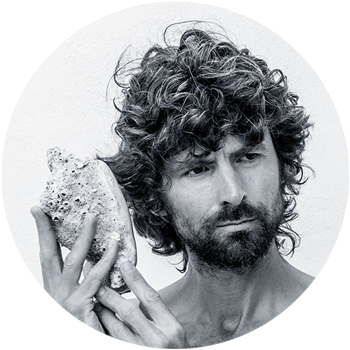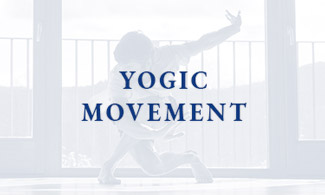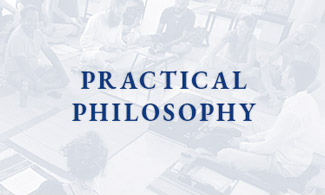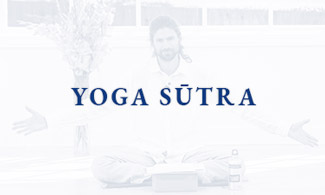
Econo-Bee
On how ecology – the understanding of the ecos: the environment, the resources – is the foundation for economy – good management of the ecos. On learning from other species, especially bees, and pollinators more generally, considered emissaries of the Sun, the Source of Life by the ancient Egyptians, and by me, too. On the bee capsule at Barefeet biofeedback in Samara, Costa Rica. And on the sufficiency economy advocated by the 9th King of the Thai Chakri dynasty.
In my recent article ‘Into the Grey’, I mentioned that when I saw Satish Kumar speak on Soil, Soul and Society, he said many things that have stayed with me in the years since. That day, Satish related how on a previous occasion, he had been invited to speak at the London School of Economics. On taking the dais, Satish asked the audience who was there from the Ecology department.
No one raised their hand.
“We don’t have an Ecology department here Mr Kumar.”
Now I paraphrase Satish’s response:
“Mmm, no Ecology department, in a school of Economics… something’s amiss here, no? Something is not really adding up.
Economia – management of the ecos, of the resources. Ecologia – understanding of those resources.
There can be no economy (good management of the resources) without ecology (understanding of the resources).”
Indeed.
Some politicians and media voices repeat again and again how ‘we need a strong economy’. Sometimes, in what I would say is a spectacularly flawed and fallacious way, they suggest that we need to prioritise ‘the economy’ over all other concerns. Making such assertions, they speak as if ‘economic growth’, or having more and more of this imagined construct called money displayed in figures on a screen, will enable us to have a better life. We are strange creatures us humans. Surely, ecology, and looking after the long-term wellbeing of the environment is a necessary foundation for a functioning and healthy economy. We risk there being no ecos to enjoy if we do not look after it.
This is one of the reasons why I would like to ask that we ‘change the climate’ of our discourse around the environment. I was born in 1977. When I started secondary school, undeniable facts of environmental degradation were already well-known. Deforestation was decimating species, weakening the resilience and adaptability of the overall ecos and biosphere. Industrial and chemical pollution was known to cause all sorts of respiratory problems, diseases and ailments in humans. We knew that chemical pesticides and fertilisers were not viable long-term ways to provide nourishing food. We knew that industrial and chemical pollution was making fresh drinking water scarcer. We knew we were soiling our own nest. In the late 1980s, the ‘green movement’ was ‘on’/‘in trend’, at least that’s how it seemed to me. As I recall it, in England then, the Body Shop, with its high profile campaigns Against Animal Testing and for Recycling, Reducing, Re-using, was huge. It seemed that we had the awareness that big changes needed to happen. Thirty years later, the foundational problems persist. We still rely on energy sources that ravage and pollute our environments and make our home less healthy, and in the case of nuclear fission, more precarious. We still use an outdated method of food cultivation and distribution which may boost some of those ‘economic’ figures on a screen for some big companies, but which deplete the soil and people’s health. There have been many encouraging developments, but these underlying problems remain. All the while, the ‘climate change industry’ has grown. And with it, the ‘climate change argument/debate’ in which a lot of hot air is pumped out as people argue about opinions and interpretations of data.
For me, these arguments are somewhat beside the point. Whether or not human pollution and burning of fossil fuels will lead to however many degrees of global warming is not the real issue. I would say that the real issue is not speculative. The real issue is that as a species we are not living in harmony with our environment. We are not living anywhere near as healthily as we might. Consequently, we are spewing into the atmosphere habits that perpetuate and entrench needless suffering.
Even amongst the pundits who go on about the importance of a ‘strong economy’, some of them also say that health is the ultimate wealth and agree that without health we cannot be happy. When ‘economic growth’ or ‘economy-centric’ policies come with a significant cost to all our health: polluting earth, water, soil and sky, it certainly doesn’t look like a strong ‘economy’ in the true sense of the word. It looks rather like gross mismanagement of the ecos.
So what to do?
Perhaps we can learn from other species. Perhaps we can learn from the observation of nature, as our ancestors who bequeathed us the great, practical riches of our wisdom traditions did. Perhaps we can consider what I will refer to as Econo-bee.
Let me explain
I’m on the beach in Samara, Costa Rica, talking to a local nature lover. As our conversation goes on she says, “I think I need to take you to the bees.”
“The bees?” I wonder. She then tells me a bit about the bee capsule at Barefeet Biofeedback and the story behind it – I summarise now, and resort to layman’s terms.
“It has long been a legend,” she told me, “that those who keep bees never have asthma, nor do they suffer from other respiratory problems.”
Was this just what people in the England I grew up in – a place largely severed from much of its ancestral wisdom – called ‘an old wives tale’? Or was it one of those old tales that actually contain much truth, much ‘gold’, much practical wisdom?
Well, I guess you guessed that it’s the latter.
In Russia, scientists started researching this. They found that the bees maintained such high air quality (antiviral, antibiotic, anti-inflammatory) within their hives, and such a harmonious frequency, that the beekeepers’ exposure to this ‘super air’ and ‘symphonic field’ (my lay terms) was giving them significant health boosts. The Russian researchers then started successfully treating people with asthma by having them ‘be with the bees’ and breathe the air from the hives.
Meanwhile, in Costa Rica, a young man, still a teenager, has a vision, of how we need to save the bees and how they can help save us. He started looking after local bees and then built a capsule of the type I would soon experience. A capsule similar to those used by ancient Egyptian kings and queens who would meditate or rest in them. While the ancient Egyptians worshipped Horus and Ra, Solar or Sky deities, they also worshipped the bees as the tears of the Sun. And with very good sense too. Without the Sun, we are nothing, no life on Earth. Without the Sun’s emissaries, the great pollinators who allow the earth to give and grow nourishing vegetation, we cannnot survive. No food, no life. The bees were recognised as emissaries of ‘God’, in the sense of the Source of Life, and as deities to be honoured, respected, worshipped. Worshipping the bees means honouring the web of life, respecting all parts of the ecos. Worshipping the bees, the kings and queens would also put themselves in close proximity to them. Which is what I got to experience.
Yoga, traditional Indian systems of knowledge and philosophy, and now modern science all recognise that life is pulsation. All living beings are pulsating, vibrating at a certain frequency. Humans who spend time around animals often notice that the animals are quite adept at sensing a human’s ‘vibe’.
When a person enters and lies down in the bee capsule, we are close enough to the hives that our energetic frequency enters the bees’ field. We enter a field in which the bees are constantly working to ensure harmony. The bees start working. They start ‘doing their duty’. True to their nature, they do their dharma, the authentic action which supports the wellbeing of the whole. When we lay down in the capsule, the bees sense us, and ‘do a scan’. Each bee then works to re-harmonise the field, and so help harmonise our field and bring us into resonance, into cohesive balance and harmony. Natural medicine fit for a Pharaoh.
I found my time with the bees wonderfully healing, and it left many layers of imprint, including this idea of econo-bee.
Economic models that ignore a foundation of ecological health are deeply flawed. One way this is evidenced is by how our so called ‘economic’ model has failed to keep up with changing reality and understandings. In relation to food for example, it is based on systems of ‘production’ and methods of distribution that seemed a good idea in the years after the second world war, but which have not made as much sense for decades now. Modern science has long since recognised that harmony and diversity are hallmarks of long-term, sustainable, antifragile, natural systems, and that mass-scale chemical agriculture is not sustainable. Life is constant change. A viable, sustainable system is one that is adaptable, one that is responsive, one that owns and knows that there is no ‘fixed way’. The appropriate response is a thing of the particular moment. A strong economy is one based on the reality of ecology: that recognises the cyclical nature of life, that is diverse, locally variant, adaptable. It does not put all its eggs into one, or just a few baskets.
Human craziness can appear to be deeply entrenched, a habit with a lot of inertia. But the bees remind us, there is another way. So what do I mean by econo-bee, or learning from the bees’ society?
First, the bees take responsiility for their own health and harmony. When in balance and harmony, they then contribute to the wellbeing of the wider community and beyond. They contribute to the wellbeing of the whole, a principle known in Sanskṛt as lokasaṅgraha.
Sometimes people talk about a supposedly ‘major’ difference between political conservatives who think that the way to wellness is personal responsibility and to ‘pull oneself up by one’s bootstraps’, and socialists, who believe that the government or state should provide a safety net and ensure certain opportunities and services for all. I do not belong to any particular political party, but neither do I see these ideas as having to be contradictory. Rather, could we recognise them as two mutually complementary aspects of a healthy society?
I certainly agree that we each have to take responsibility for our actions and motivations. But at the same time, it is normal in life that sometimes we will need ‘a little help from our friends’. We no longer live in tribes of a couple of hundred people. Many of the things we do, like travel significant distances, like undergo expensive medical treatments, like gather to study, work, play with people from different places, are things that many, many people are involved in. They impact the whole, global community. It makes sense to collaborate to provide public transport, education and health care. It makes it more efficient for almost everyone.
So how about we learn from the bees? Take care of ourselves and our homes so we are better able to share positively with the wider world, so we are better able to help those in need. Sooner or later, we are likely to be in need one way or another. Even if we are not, when we act for the good of the whole, lokasaṅgraha, each of us is rewarded, each of us gets to live in a healthier, more harmonious hive of creative possibility, of vibrance, congruence and greater efficiency.
Looking after ourselves and our home also means looking after the bees, means looking after the soil, the air and water quality. Scientific research is showing that organic, local produce is vastly more nutritious than the misleadingly and I would say somewhat criminally named ‘conventional’ produce grown with chemical fertilisers and pesticides that have been ‘conventional’ only since the Second World War. Nature is amazingly abundant. We may trash our home to the degree that it is uninhabitable for humans, Nature will survive, no problem. I would suggest that if we are to survive and thrive as we really can, we need to shed this artificial lab coat trying to mask our insecurities, we need to shed this idea of thinking we can govern, dominate, control Nature. How about we abandon the delusion that this Earth is our possession? And then enjoy the lightness and spaciousness of a new way? A way of collaboration with Nature. That works with its diversity, its resilience, its beauty, that repectfully harnesses its abundance and munificence?
We have a lot of time-proven understanding of how to tend land sustainably, how to grow real food. It is our economic model that needs updating. The way of domination and exploitation does not work, has already malfunctioned. Our overly large scale and ultimately damaging and wasteful methods of cultivation and distribution need reform.
When I lived in Thailand, the 9th King of the Chakri dynasty, Bhumibol Adulyadej was still alive and the longest reigning monarch then on the earth. He was already elderly and not so active in public life as he had been. At that time – early 2000s – his major project, the idea that he had been advocating was the ‘sufficiency economy’. Thailand is a land of plenty. We should look after our abundant resources, feed ourselves, produce for our essential needs and then share, sell, export the surplus, engaging in mutually beneficial trade not from a place of need, but from a place of sufficiency, of ‘enoughness’. I am summarising this in broad brush strokes, but it appealed to me then, and it still does. Unlike its neighbours, Thailand was never colonised. The kings of the Chakri dynasty demonstrated a keen intuition and sage foresight when it came to long-term viability. I think in terms of the sufficiency economy model, King Bhumibol Adulyadej was continuing this legacy. I also think it’s a lot like the bees, the great pollinators revered by kings and queens of a much older great dynasty. First, they tend to the harmony of their immediate hive, or home. Then, healthy and vibrant, they go about spreading health and vibrance, pollinating, helping fertilise and distribute nutrients for the good of the whole land and its inhabitants of so many different species.
I would suggest that when we engage in practical efforts to reconnect to the soil, and to care for the pollinators, we will be able to see myriad ways to support a large human population from a place of vibrant harmony and abundance.
I got to experience being with the bees like this at Bare Feet Biofeedback.

James Boag | Whole Life Yoga
The yoga of the whole human being. Practical philosophy, storytelling, movement, inquiry, looking in ways that reach beyond our habitual ways of looking.
Listen to James’ unique whole life yoga perspectives on the WHOLE LIFE YOGA podcast.











